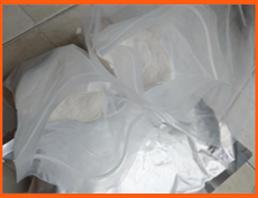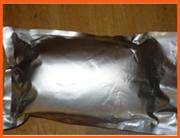Product Name: Nilotinib
Other Name:Nilotinib;AMN 107;Benzamide, 4-methyl-N-[3-(4-methyl-1H-imidazol-1-yl)-5-(trifluoromethyl)phenyl]-3-[[4-(3-pyridinyl)-2-pyrimidinyl]amino]-;4-methyl-N-[3-(4-methylimidazol-1-yl)-5-(trifluoromethyl)phenyl]-3-[(4 -pyridin-3-ylpyrimidin-2-yl)amino]benzamide;Nilotinib(TINIBS );4-Methyl-3-((4-(3-pyridinyl)-2-pyrimidinyl)amino)-N-(5-(4-methyl-1H-imidazol-1-yl)-3-(trifluoromethyl)phenyl)benzamide;Nilotinib for research;Tasigna
Model No.: ATC-142
CAS No.: 641571-10-0
Molecular Formula: C28H22F3N7O
Molecular Weight:529.52
Stability: N/A
Target:N/A
Appearance: Off-White Solid
Melting Point: N/A
Purity: 99%+
Suitable People: ALl
Product Specifications: Pharmaceutical Grade
Standard: Qualified
MOQ(Minimum Order Quantity): 10g
Payment: L/C, T/T, Western Union
Shipment: EMS, DHL, FedEx, TNT
Packing: Aluminium Foil Bag or as Required
Brand: Biocar
Origion: Hubei,China
Export Markets: Global
Product Description
Nilotinib is a selective, oral inhibitor of tyrosine kinase with IC50 values of 20, 42, 31, 38, 29 and 41 nM for the autophosphorylation of native BCR-ABL (WT p210) and mutant BCR-ABL (E281K, E292K, F317L, M351T and F486S), respectively.
Nilotinib was designed based on the structure of imatinib and showed the superiority over imatinib in newly diagnosed or imatinib-resistant chronic myelogenous leukemia (CML). It was more potent than imatinib to wild-type BCR-ABL in a wide range of CML-derived and transfected cell lines. Nilotinib was also efficacious in gastrointestinal stromal tumors. Nilotinib showed inhibition activities in KIT mutant cells, including KITV560del, KITK642E and KITV560G (IC50 value of 108 nM). It also was effect to double mutations of KIT, such as KITV560del/V654A, KITV559D/D820Y, KITV560del/V654A (IC50: 192 nM) and KITV559D/D820Y (IC50: 297 nM). Besides that, Nilotinib exerted selective inhibition of PDGFRα and PDGFRβ. It suppressed cell proliferation with IC50 value of 0.54 nM in EOL-1 cells with constitutive activation of FIP1L1-PDGFRα.
Nilotinib is an anti-cancer medication that is used to treat some types of leukemia, specifically Philadelphia chromosome positive chronic myeloid leukemia (Ph + CML). This medication is called a kinase inhibitor, which means that it works to halt the growth and spread of cancer cells. Nilotinib accomplishes this by inhibiting an abnormal protein that is responsible for instructing cancer cells to multiply. With this particular type of cancer, the body manufactures a great deal of abnormal white blood cells. Nilotinib is only prescribed after other cancer treatments, such as imatinib, have been tried and have not been sufficient.
Nilotinib (AMN107, trade name Tasigna), in the form of the hydrochloride monohydrate salt, is a small-molecule tyrosine kinase inhibitor approved for the treatment of imatinib-resistant chronic myelogenous leukemia. Structurally related to imatinib, it was developed based on the structure of the Abl-imatinib complex to address imatinib intolerance and resistance. Nilotinib is a selective Bcr-Abl kinase inhibitor that is 10-30 fold more potent than imatinib in inhibiting Bcr-Abl tyrosine kinase activity and proliferation of Bcr-Abl expressing cells.


 China
China

